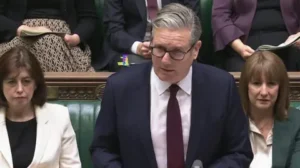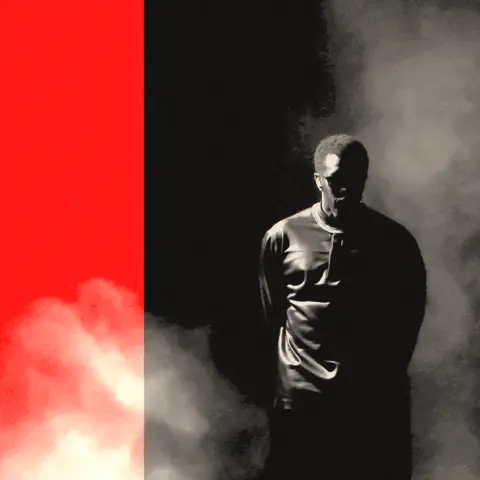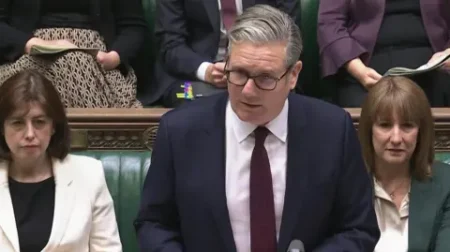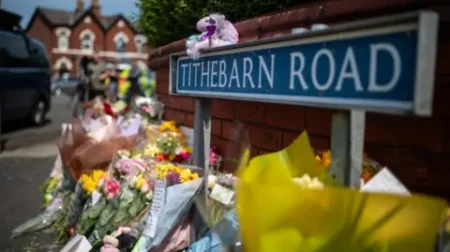The repercussions of allegations against Sean “Diddy” Combs have sparked renewed discussions about accountability within the hip-hop industry, prompting many to question why the genre has been slow to achieve its own “MeToo” moment. In the wake of serious allegations and a recent conviction involving transportation to engage in prostitution, the circumstances surrounding Combs’ trial have illuminated deeper issues related to power dynamics, misogyny, and the culture of silence that persists in the music industry.
During his eight-week trial, Cassie Ventura, Combs’ former girlfriend and an R&B singer, testified about a tumultuous relationship marked by abuse and manipulation. Her account, centered on control and degrading treatment, offered insight not only into her personal experiences but also highlighted broader systemic issues. Ventura claimed that her life was dictated by Combs, who exerted his dominance through threats and coercive tactics. This testimony underlined the bitter reality faced by many women in the industry who struggle against powerful figures, a reality that isn’t limited to Combs but extends across various sectors of music.
The conviction of Combs on lesser charges has ignited a dialogue among survivors, campaigners, and industry insiders about the necessity for change. Questions arose about the timing of accountability—why it took so long to hold him to account. The contrast with movements in other sectors, particularly Hollywood’s MeToo, presents a critical inquiry into why such behavior has been tolerated or ignored within hip-hop for decades. Critics argue that specific cultural elements play a significant role in the music industry’s reluctance to confront issues of sexual violence and harassment.
In a culture where masculinity is often linked to dominance and power, many women find themselves vulnerable due to their positioning within the industry. Cristalle Bowen, a rapper from Chicago, expressed that women often occupy roles that make them targets for abuse, with the music business creating environments where incidents of misconduct are overlooked or silenced. She noted that protecting the brand often takes precedence over addressing allegations, driven by the harsh reality that speaking out can lead to professional ostracism and retaliation.
Supporters of Ventura, including her lawyer Doug Wigdor, have highlighted her bravery in coming forward as a catalyst for change, arguing that her actions have shed light on a pervasive culture of abuse among powerful men in music. While her case may be a step toward accountability, activists warn that it cannot be an isolated event. The industry must undergo systemic changes to protect survivors and create environments where such allegations can be addressed openly and without fear of backlash. This includes reevaluating the use of non-disclosure agreements (NDAs), which are ostensibly used to protect sensitive information, but are increasingly viewed as tools that perpetuate silence around abuse, facilitating a cycle of impunity for perpetrators.
Amidst these conversations, the progress made in other industries offers a hopeful precedent. The implementation of intimacy coordinators on film sets following the MeToo movement serves as an example of practical measures that could similarly be adopted in the music sector. Various organizations and advocates are now calling for similar reforms, urging the industry to establish protocols that promote transparency and safety for artists.
The historical context of hip-hop, which originated in resistance and self-expression, has also played a role in the complicity surrounding abuse. Hip-hop culture, which gave a voice to marginalized communities, is now grappling with its portrayal as being inherently misogynistic—an association that some critics argue further complicates the conversation around misconduct. As Combs faces over 60 civil lawsuits and the legacy of his influence continues, the onus remains on the industry to reflect on its practices and actively work toward accountability.
In closing, as the music industry seeks to navigate this transformative moment, the need for a cultural reset is evident. The legacy of artists like Combs, juxtaposed with the stories of women who suffered at their hands, must compel all stakeholders to address the deep-rooted issues of power dynamics and abuse. Simultaneously, broader societal attitudes must shift to support survivors and dismantle the systems that have historically sidelined their voices. The hope is that this moment signifies not just a reckoning for Combs but a path towards a more equitable and respectful music landscape for all.











